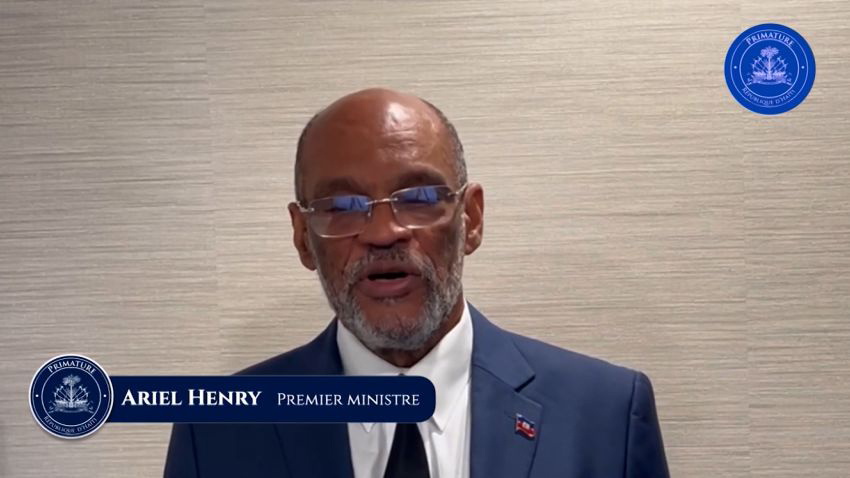Ariel Henry, Haiti’s acting prime minister and president since July 2021, resigned from his post on Monday, March 11. The resignation of Henry was announced by Irfaan Ali, Guyanese President and Chair of CARICOM, in a press conference in Kingston, Jamaica on Monday. Ali also announced that a “transitional governance arrangement” had been achieved in order to restore “rule of law” and ensure a peaceful transition of power, security, and eventual elections.
The announcement came as a result of an urgent meeting on the “multidimensional crisis in Haiti” convened by CARICOM (Caribbean Community) with participation of “Haitian stakeholders” and “international development partners” which consists of representatives from Brazil, Canada, France, Mexico, United Nations, and the United States, represented by Secretary of State Antony Blinken. The parties laid out a roadmap for the establishment of a Transitional Presidential Council and the eventual naming of an Interim Prime Minister.
The meeting was convened in the midst of an upsurge in violence in the country which saw criminal groups attempt to seize the Toussaint Louverture International Airport in the capital Port-au-Prince, and a prison break of thousands of prisoners.
Henry had left the country to visit Kenya on February 29 in an attempt to revive the commitment of the East African country to send a thousand police personnel to lead the US-backed Multinational Security Support (MSS) mission. However, Henry was unable to travel back to his home country due to the attempted airport takeover and growing calls for his immediate resignation by diverse groups in the country.
The resignation of Henry had been a long standing demand of various opposition parties and organizations in the country who maintained that his mandate was illegitimate. Henry seized power in the aftermath of the assassination of Haiti’s de-facto president Jovenel Moïse, with the backing of the same foreign powers which today sanctioned his resignation. At the time of his assassination, Moïse had already overstayed his constitutional term limit by five months and had been planning to hold a widely rejected constitutional referendum. Moïse had faced several waves of mass popular protests which demanded that he resign and that a path to restoring democratic order be charted out by the diverse sectors of Haitian society and political groups.
For the nearly three years that Henry was in power, few efforts were made to address the long standing demands for the democratization of Haiti and the implementation of the Montana Accord.
In August 2021, 418 civil society organizations, 105 popular movements, 85 political parties and groups and 313 personalities from various fields reached an agreement known as the Montana Accord. The agreement was drafted as an attempt to find a solution to the crises facing Haiti with the participation of diverse sectors of society. The organizations reached a consensus on the establishment of a new transitional government, to lead the country for a period of two years, strengthen state institutions, carry out trials against embezzlers of public funds, and at the end of the period, organize elections for the next government.
As described by the Assembly of Caribbean People, a platform of movements and parties from across the Caribbean, the Accord is “based on a Haitian solution to the Haitian crisis” and “has the support of hundreds of Haitian organizations—social movements, civil society organizations and political parties—and prominent individuals.”
🚨🇭🇹 We stand with Haiti & reject all forms of foreign intervention by the US/UN.
The violence of paramilitary groups, supplied with US weapons only serves to justify imperialist plans against the Haitian people.
We stand for self-determination & the popular resistance of the… pic.twitter.com/c4GBiOC8l0
— The People's Forum (@PeoplesForumNYC) March 12, 2024
As the crisis in Haiti intensifies, movements warn that foreign intervention is not the solution, and has instead been the cause of many of the crises Haitians face today.
The Assembly of Caribbean People demands “that there be no foreign military intervention in Haiti. We say that the only way forward is for the Haitian people to be allowed to bring into being a Transitional Government as proposed by the Montana Accord.”





